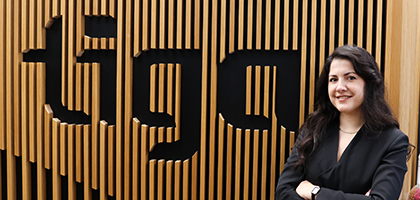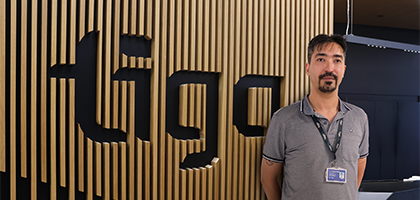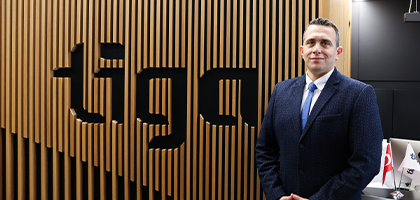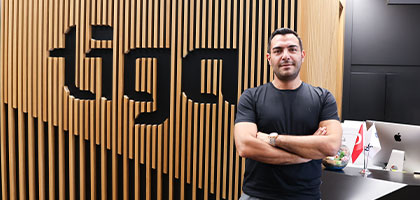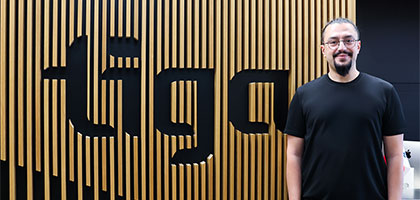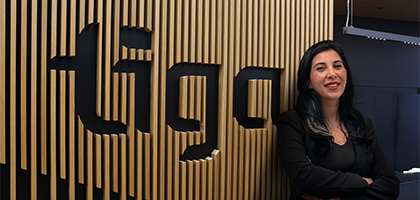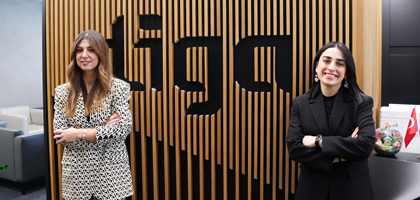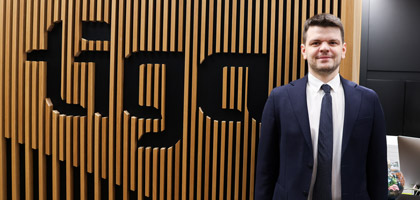
Insights
An Interview with Furkan Çiftçi on International R&D Funding: Shaping the Future of R&D Projects with International Grants
We did an interview with Furkan Çiftçi, our EU Grants Manager, to explore the significant impact of project calls, grants and international funding sources on healthcare IT research and development (R&D). Çiftçi shared his valuable insights into how financial support provides necessary resources and accelerates the development of innovative healthcare technologies. The interview also shed light on how project calls facilitate crucial international collaboration, strategic partnerships and knowledge exchange among diverse stakeholders.
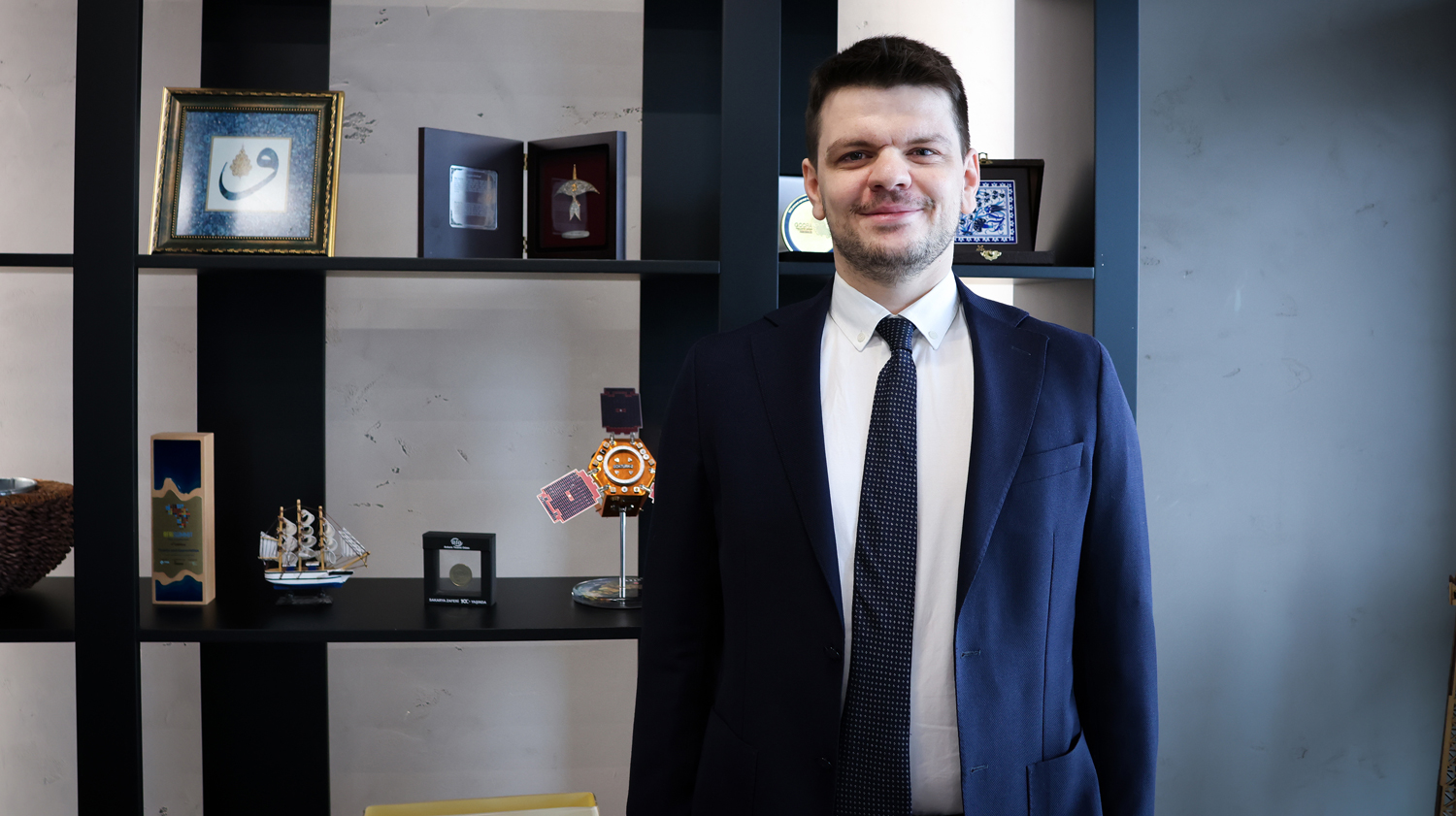
Here’s the interview:
1. Firstly, could you share your ideas about how do project calls, grants, financial support and funding sources impact the development and success of R&D projects in the healthcare IT sector?
In my opinion, financial support for R&D with project calls and grants, coming from different funding sources, has an important impact on the development and success of R&D projects, especially in the healthcare IT sector, where sometimes the initial cost and risks for these projects are high. These grants provide the necessary resources for companies to undertake ambitious research and development initiatives that might otherwise be unfeasible due to financial constraints. EU funding plays a crucial role in shaping our R&D priorities, allowing us to focus on innovative solutions that address pressing healthcare challenges. With 10 years of experience managing EU projects, I have seen firsthand how these funding opportunities can accelerate the development of groundbreaking technologies and facilitate their integration into real-world healthcare settings. By supporting R&D projects, these funding sources improve healthcare outcomes, enhance patient care and drive economic growth. Furthermore, the collaborative nature of many EU-funded projects fosters a culture of innovation and knowledge-sharing, which is essential for advancing the healthcare IT sector. Overall, I firmly believe that project calls, grants and funding sources are necessary for the success and development of R&D projects in our field. They help us set priorities, guide our research and ensure our efforts align with the healthcare community's needs. By leveraging these funding opportunities, companies like Tiga Healthcare Technologies can make a meaningful impact in the healthcare IT sector.
2. Beyond financial support, how do project calls influence opportunities for international collaboration, strategic partnerships and knowledge exchange, particularly in the context of R&D?
Beyond the financial support, project calls and funding opportunities play a significant role in facilitating international collaboration, strategic partnerships and knowledge exchange in the context of R&D. By participating in EU-funded projects, Tiga has been able to establish partnerships with renowned institutions and companies from Europe, fostering a collaborative environment that encourages the sharing of expertise, resources and best practices. Notably, we have had the opportunity to collaborate with more than 50 partners from over 10 countries, which has broadened our network and enriched our projects with diverse perspectives and expertise. These partnerships have been instrumental in enhancing the quality and impact of our R&D projects and have provided opportunities for knowledge exchange, allowing us to stay abreast of the latest technological advancements and trends in the healthcare IT sector. Furthermore, international collaboration enables us to leverage the strengths of different countries and organizations, leading to more innovative and effective solutions that can be applied globally. In my experience, project calls have been instrumental in creating a network of like-minded organizations and individuals who share a common goal of advancing healthcare through innovation. I believe this collaborative approach is essential for driving meaningful progress in R&D. By participating in project calls, we can tap into this network, identify potential partners and develop strategic collaborations supporting our R&D objectives.
3. How do regional or sector-specific funding sources shape the priorities and focus areas for R&D projects?
Regional and sector-specific funding sources such as Horizon Europe and IHI calls are crucial in shaping the priorities and focus areas for R&D projects. At Tiga, we are committed to addressing the current problems of Europe by leveraging cutting-edge technologies. Our R&D efforts are focused on harnessing the power of innovative solutions, such as Large Language Models (LLM), synthetic data generation and advanced image processing, to tackle pressing healthcare challenges. By responding to funding opportunities from sources like Horizon Europe, IHI and Eureka we align our projects with the strategic objectives of the European Union, ensuring that our work is relevant, impactful and addresses the real-world needs of European citizens. Our goal is to utilize these advanced technologies to develop innovative solutions that can help mitigate the current healthcare challenges facing Europe and we believe that our participation in EU-funded projects is instrumental in driving this mission forward. We aim to create meaningful and sustainable impacts in the healthcare IT sector by combining our expertise with the latest technological advancements.
4. How does managing international financial support help build internal capabilities, risk management strategies and long-term sustainability for healthcare IT R&D projects?
Managing international financial support is instrumental in building internal capabilities, risk management strategies and long-term sustainability for healthcare IT R&D projects at Tiga. By navigating the complexities of EU funding, we have streamlined our internal processes, leveraging these funding programs' strict guidelines and requirements to create a template for success. This has enabled us to standardize our project management methodologies, ensuring that all our R&D initiatives are executed consistently and in quality. As a result, we have developed robust risk management strategies that allow us to mitigate potential pitfalls and capitalize on opportunities, ultimately enhancing the overall sustainability of our projects. By adopting a standardized approach to project management, we have reduced administrative burdens, increased efficiency and focused on high-value activities that drive innovation and growth. This, in turn, has enabled us to build a strong foundation for long-term sustainability, allowing us to confidently scale our R&D efforts and pursue new opportunities.
5. How do you evaluate the impact of international funding on accelerating the commercialization and market adoption of healthcare IT innovations developed through R&D?
I strongly believe that international funding is beneficial in accelerating the commercialization and market adoption of healthcare IT innovations developed through R&D. The funding opportunities provided by programs like Horizon Europe, IHI and Eureka have been instrumental in helping us bridge the gap between research and commercialization. For example, Eureka's Innowwide call is specifically designed to support the commercialization of innovative solutions in international markets. Tiga has had the privilege of succeeding in this call with a project focused on commercializing our mobile physiotherapy solution in the UAE. This experience has demonstrated the tangible impact of international funding on accelerating market adoption, as it enabled us to navigate the complexities of entering a new market and tailor our solution to meet the specific needs of UAE healthcare providers. The funding and support received through Innowwide have been crucial in helping us overcome the commercialization hurdles and we are now poised to expand our reach in the Middle East and beyond.
6. What are the key factors that make certain healthcare IT R&D projects more likely to attract international funding and how does Tiga Healthcare Technologies position itself to be competitive in this regard?
The key factors that make specific healthcare IT R&D projects more likely to attract international funding are their potential for real-world impact, market relevance and alignment with pressing healthcare challenges. Currently, financing tends to shift towards projects with tangible market value, rather than solely focusing on scientific advancements. In this context, Tiga Healthcare Technologies is competitive in the international funding landscape. With our solutions already deployed in three countries - Türkiye, Saudi Arabia, and Qatar - we have demonstrated our ability to develop and implement innovative healthcare IT solutions that meet real-world needs. Moreover, our close relationships with healthcare stakeholders in these regions enable us to stay attuned to market demands and match our research interests with actual market needs. This unique blend of technical expertise, market understanding and stakeholder engagement makes us an attractive partner for international funding opportunities. By leveraging our existing network and expertise, we are well-positioned to develop projects that advance state-of-the-art healthcare IT and have a clear path to commercialization and market adoption, making us a competitive candidate for international funding.
7. How have international grants contributed to the growth and success of Tiga’s R&D projects and can you share any specific examples?
International grants have been instrumental in the growth and success of Tiga’s R&D projects, providing us with both critical funding and opportunities for global collaboration. These grants have enabled us to develop innovative solutions, expand our network and enhance our expertise in various areas of healthcare IT. One notable example is the Innowwide grant, which supported the commercialization of our mobile physiotherapy solution in the UAE. This funding helped us mature our solution, adapt it to the local market and establish a strong regional presence. Another example is the AISym4MED project which focused on developing AI-powered medical imaging solution; through this project, we significantly improved our skills in synthetic data generation, a crucial aspect of AI development, and made substantial progress in creating more accurate and reliable medical imaging models. Additionally, participating in the HIVEMIND project will enable us to integrate Large Language Models (LLMS) into our software development life cycle management, further enhancing our capabilities in AI-powered software development. These international grants have provided us with the necessary funding and facilitated collaboration with renowned institutions and companies, allowing us to leverage diverse expertise and stay at the forefront of healthcare IT innovation. Participating in these projects has accelerated our R&D efforts, expanded our portfolio and strengthened our position as a leading healthcare IT company.
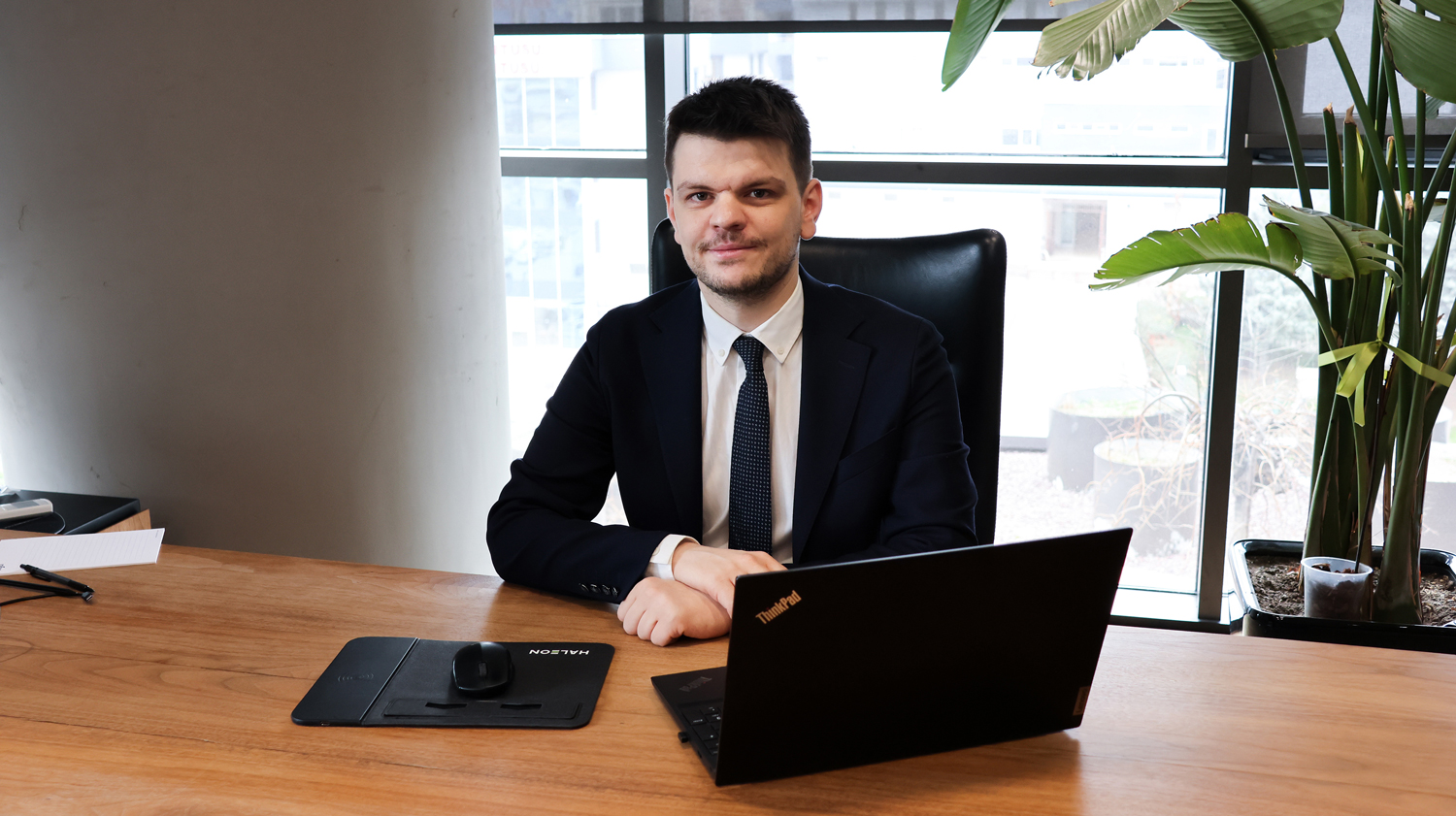
Key Points of the Interview
- The Importance of Funding in Healthcare IT R&D: International funding provides essential resources to undertake high-cost, high-risk R&D projects in healthcare IT which would otherwise be unfeasible. This support accelerates innovation and directly contributes to improved healthcare outcomes and economic growth.
- The Vital Role of Grants in Fostering Collaboration and Internal Growth: Project calls and managing grants are crucial for building international collaborations, strategic partnerships and knowledge exchange networks. This process also strengthens internal capabilities, standardizes processes and enhances long-term sustainability for R&D projects.
- The Path from Research to Global Impact: International funding accelerates the commercialization and market adoption of healthcare IT innovations. It helps bridge the gap between research and the implementation of solutions in real-world healthcare settings globally.
This insightful interview with Çiftçi underscores the critical significance of project funding and grants in driving R&D efforts in the healthcare IT landscape. His perspective reveals that grants are key to empowering health research and projects, building strategic international collaborations and connecting discovery to global reach.
Let’s shape the future together, as always!


